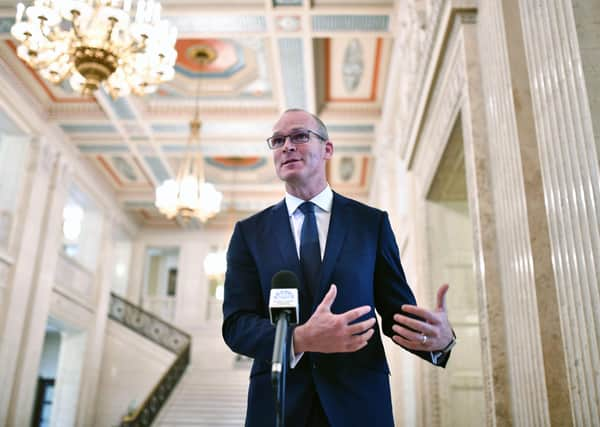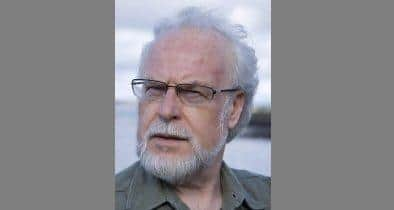John Wilson Foster: Unionists have good reason to be wary about facing south


(See below for a link to Prof Kennedy’s article)
The island is already shared, of course, sometimes with reluctance, sometimes without publicity.
There are more cross-border initiatives, organisations, and projects than most unionists are aware of, in the fields of security, sport, agriculture, academic exchange, and medical research and practice.
Advertisement
Hide AdAdvertisement
Hide Ad

And, of course, business. Only last week I read a pronouncement by InterTradeIreland, the syntax of its very title mimicking cross-border activity.
So clearly the Taoiseach has something more substantial in mind.
Did he not say that he was working against the day when England would grow tired of us?
Is his unit not, as Simon Coveney observes, “very engaged in the politics of Northern Ireland”? Thus earning the support of the man who wishes to see unification in his political lifetime?
Advertisement
Hide AdAdvertisement
Hide AdSo unionist wariness is an expression of political imagination, not its absence.
It is imagination in life that allows us to see what might transpire, and to our detriment or advantage.
Unless they face south, and cheerfully, unionists will always be seen in a bad light.
That is because third parties think of a united Ireland warmly, oblivious that it means severing Northern Ireland from Great Britain, which is for unionists the very opposite of unity.
Advertisement
Hide AdAdvertisement
Hide AdHowever, unionists could certainly add warmth to their wariness about facing south, if southerners could first self-administer a long-overdue dose of reality.
Professor Kennedy rightly claims that sharing is a two-way street, involving the east-west longitudes as well as north-south latitudes.
He says that the Republic should recognise its economic and cultural debt to England.
For example, Great Britain has been a “place of refuge” for those Irish suffering from unemployment or suffering from repressive church and state institutions.
But caution sets in at this point in Liam’s argument.
Advertisement
Hide AdAdvertisement
Hide AdThe Shared Island Unit is a government department which clearly means business. What comparable unit in the South does he advocate to take action on a British dimension to Irish identity that goes way beyond debt?
Such a unit would quickly find that the intimate cultural and economic interaction between the South and GB makes nonsense of separatist nationalism. Liam cites Sean O’Casey and Edna O’Brien as examples of Irish who crossed the water to find refuge, from religion, narrow nationalism, or Catholic puritanism.
But in fact O’Casey stayed for the last 37 years of his life in Devon, not retracing his steps even when the Abbey Theatre staged The Silver Tassie, his Great War play it had rejected because it did not advance the Irish nativism the company demanded.
His family, now English, lives there to this day.
Because he stayed a communist and Irish nationalist, was O’Casey a hypocrite living on in creamy Devon and sending his children to a progressive fee-paying school? No, he was simply at home in England. He was cremated in Golders Green.
Advertisement
Hide AdAdvertisement
Hide AdLikewise, Edna O’Brien has not returned to Ireland though it has become an almost unrecognisably more secular and liberal society.
She has been a Londoner of long standing and in 2018 was made a Dame of the British Empire. I don’t mean to insult a major writer, but unless you think ethnicity or race essential to nationality, Dame Edna is as British as I am.
Liam’s reference to “the huge benefits that accrued to Irish society from close proximity to Britain from the 1920s onwards” is a vast understatement that the south needs to recognise.
The relation between GB and Ireland is not just proximity but deep interdependency, with the Republic as the net beneficiary.
Advertisement
Hide AdAdvertisement
Hide AdIn the 20th century, an Irish historian tells us, 1.6 million southern Irish left for Britain, more than twice as many as went to North America.
In 2001, one in every six Irish persons born in the Republic was living in Great Britain (to the tune of 850,000).
These statistics suggest to me that they were not emigrants but migrants, with the Common Travel Area the chief lubricant of movement.
Who is leading the quest in Oxford for a coronavirus vaccine? A Dubliner.
Advertisement
Hide AdAdvertisement
Hide AdWho is the highest ranking academic in the UK? A woman from Co Waterford, vice-chancellor of Oxford University.
Who is the highest paid BBC employee? A man from Bandon, Co Cork. They are merely the most visible of a vast legion of employees, of professionals of all walks, entertainers, artists and celebrities.
The Irish think of Britain as an extension of Ireland, a country and culture on tap.
Yet the united Ireland campaign is at best covertly, at worst openly, anti-British. Go figure.
Advertisement
Hide AdAdvertisement
Hide AdDoes a campaign to annex Northern Ireland in order to create a bigger version of the Republic, itself an economic and cultural interdependency with GB, make any sense?
Would it not make more sense for the Republic first to acknowledge the interdependency? Then, after research and reports by “Shared Islands Units” in the governments of the Republic, UK and Northern Ireland, for a British-Irish convention to decide how best to create bodies and associations to reflect the true daily intimacy between Ireland and Britain?
In such an eventuality, unionists would share this island wholeheartedly. And just as crucial, those northern nationalists who are unhappy (and not all are) might feel less marooned in an alien political system.
Failing such an acknowledgement, unionists are by no means sulky reactionaries for wanting, and so far failing, to see a substantial quid pro quo in the Taoiseach’s plan.
Advertisement
Hide AdAdvertisement
Hide Ad• John Wilson Foster’s latest book is The Space-Blue Chalcedony: Earth’s Crises and the Tyler Bounty (Seattle, 2020)
• Liam Kennedy: ‘Unionists risk being seen as sulking reactionaries,’ October 28;
• Aaron Rankin: ‘Jim Allister and like minded unionists seem set on a course of ourselves alone,’ October 28;
• Letter: ‘We, who share this island, have more in common with of each other than with anyone living on the island next door,’ October 28
Advertisement
Hide AdAdvertisement
Hide Ad• Editorial: Unionists should have nothing to do with Dublin’s new shared island unit,’ October 23)
——— ———
A message from the Editor:
Thank you for reading this story on our website. While I have your attention, I also have an important request to make of you.
With the coronavirus lockdown having a major impact on many of our advertisers — and consequently the revenue we receive — we are more reliant than ever on you taking out a digital subscription.
Subscribe to newsletter.co.uk and enjoy unlimited access to the best Northern Ireland and UK news and information online and on our app. With a digital subscription, you can read more than 5 articles, see fewer ads, enjoy faster load times, and get access to exclusive newsletters and content. Visit https://www.newsletter.co.uk/subscriptions now to sign up.
Advertisement
Hide AdAdvertisement
Hide AdOur journalism costs money and we rely on advertising, print and digital revenues to help to support them. By supporting us, we are able to support you in providing trusted, fact-checked content for this website.
Alistair Bushe
Editor